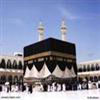
On Ghina or song the opinion of all the Shi'a jurists is united that it is haram because the singer is termed a person destined for the Hell. Therefore Ghina is considered a major sin in Shi'a Islam.
Ghina is Haram in all the schools of Sunni jurisprudence too. The only exception is that of their Sufi cult.
Imam Jafar Sadiq (A.S) says that the house in which songs are heard will be the abode of misfortunes, the prayers made from there will not be answered and angels will not descend in that place. The household will be denied the Blessings of Allah.
Song and Music
Riyan bin al Salat inquired from Imam Reza (A.S), "O Imam (A.S)! Hisham bin Ibrahim says that you have given permission to listen to music?"
The Imam (A.S) replied it is a falsehood! When he asked me, I told him that someone asked Imam Muhammad Al-Baqir (A.S) about music. The Imam (A.S) replied,' If Right and wrong are separated, on which side will be song and music?' The man said, ‘On the side of wrong!' The Imam (A.S) affirmed, 'You are right!'
Imam Jafar Sadiq (A.S) said, "Allah's Blessing will not be on a gathering assembled to listen to music. Song is the mirror of hypocrisy and the woman who sings is accursed and also those who share her earnings."
It is recorded in Ayoon al Akhbar ar Ar-Reza' that someone asked Imam Reza (A.S), "What do you say about song and music?" The Imam (A.S) replied, "The people of Hijaz think it is legitimate. But song is taboo and is an amusement and a waste of time. Therefore Allah says in the Holy Qur'an, ‘When they pass by the vicinity of undesirable activity, they pass quietly like the merciful ones.' Whoever keeps himself away from music, will have a tree in the Heaven which, when shaken with Allah's orders, will produce musical notes that no one has ever heard. Those who had been listening to music in the world will not have this privilege in the Heaven."
Ghina has been defined by the Ulema as modulation of the voice in the throat in such a way that the listeners enjoy hearing.
Ghina is that which gets appreciation for the reciter and the listeners go into a stupor of happiness or sadness. Doing such thing is Haram. There are very few occasions when music is allowed. Some do not put a condition that the song should create the feeling of joy or of sadness. Because the musical notes generally has a profound effect on the heart. If a particular person takes no effect from music, then it cannot be taken as the reason for ineffectiveness of the music.
For example, honey is sweet and pleasing to the taste. But if a person doesn't like the taste of the honey, it cannot be a proof against its generally accepted quality. To the contrary, the person who expresses aversion to honey will be questioned about his taste! During the functions at the weddings, when men are not there, some people are of opinion that a domni, a singing-dancing girl, can entertain the ladies with her performance according to some people. Some others say that this practice is undesirable. But there is a tradition that approves of the practice.
A person asked the Imam (A.S), "A singing girl lives in my neighborhood. When I go to the toilet, I hear her singing. Sometimes I am attracted to the singing and purposely delay coming out of the toilet." The Imam (A.S) asked him to avoid the practice. He said, "I don't go to the toilet with the purpose of listening to the songs. It is just that the sound comes to my ears and I listen." The Imam (A.S) said, "Have you not heard that the ears, eyes and nose will give witness about the person's actions on the Day of Reckoning?"
The prophet of Allah (PBUH) told to Salman al-Farsi, "O Salman! In the last epoch the worst thing that would emerge will be the recitation of the Holy Qur'an in sing-song voices!" Also the Prophet (PBUH) said, "Recite the Qur'an in Arabic intonation and don't recite in the tone adopted by the disobedient (fasiq) people because it is a major sin."
Imam Jafar Sadiq (A.S) said that buying and selling singer slave girls is Haram. One who earns a livelihood from this profession is accursed.
Some scholars have permitted singing to encourage the camels to run at good speeds while travelling. Some other scholars have permitted singing the marsias (elegies) of Imam Hussein (A.S). It is better to refrain from these.
Imam Muhammad Al-Baqir (A.S) says, "Singing is one of the major sins. Allah will punish its practitioners with Hell Fire." Then the Imam (A.S) recited the following verse from the Qur'an, "there are some amongst the people who buy the false voice that takes them away from Allah's Way. They are ignorant and ridicule those who are steadfast on Allah's Way. For them there is stringent retribution."
Imam Jafar Sadiq (A.S) has said commenting on the following verse of the Qur'an, فَاجْتَنِبُوا الرِّجْسَ مِنَ الْأَوْثَانِ وَاجْتَنِبُوا قَوْلَ الزُّورِ "Fajtannebuurrijsa minal autaane wa ajtanebu qaulazzoor (Surah Al Hajj: 22.30). Here Qaul az zoor refers to Ghina or songs.
source : www.tebyan.net













